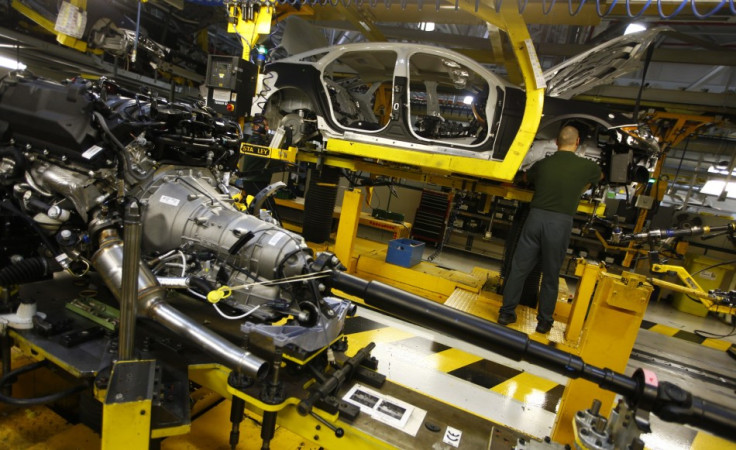UK Manufacturing Activity Slowed in April as European Export Orders Plunge

UK manufacturing growth is slowing as the sector suffers its steepest decline in new export orders in three years, according to a private industry survey.
A struggling Europe, the UK's biggest trading partner, and weak global demand has hampered UK manufacturing exports, though there is still slight growth in the sector.
"Although the expansion in output is a positive in itself, as is a modest increase in employment, manufacturers are still sustaining growth through past demand, a circumstance that cannot continue indefinitely," said Rob Dobson, senior economist at researchers Markit and author of the Markit/CIPS Manufacturing PMI.
"What manufacturers really need to see is a marked improvement in new order inflows, so April's sudden sharp drop in new export orders was a real disappointment.
"It seems that weaknesses in our major trading partner, the eurozone, are starting to hit home, especially for consumer goods producers."
The index figure for manufacturing dropped to 50.5 in April, down from 51.9 the previous month. Any figure above 50 represents growth, while under signifies a contraction.
"Even at this lower level, the PMI suggests that manufacturing ouput could make a small positive contribution to GDP growth in Q2," said a research note from French bank Societe Generale.
Weaker demand in Europe, which is being held back by the eurozone crisis, as well as in the US and east Asia led to a "sharp drop" in new export business for April.
China, which British Chancellor George Osborne is looking to as a significant export market for UK manufacturers, has seen slowing growth in its imports.
Several eurozone countries are in recession as the sovereign debt crisis continues to bite with no foreseeable end.
February's PMI data for the manufacturing, construction and service sector had been broadly positive and pointed to the green shoots of economic recovery for the UK.
However the latest GDP figures from the Office for National Statistics (ONS) tell a different story, reporting that the UK had its second consecutive quarterly contraction in growth in the first three months of the year, plunging the country into a recession.
According to its first estimate for Q1 GDP, the ONS reported that the UK economy contracted by 0.2 percent, following on from a 0.3 percent contraction in the last quarter of 2011.
Inflation also rose unexpectedly in March to 3.5 percent amid forecasts from the Bank of England that it will rapidly fall back to the government's 2 percent target by the end of the year.
© Copyright IBTimes 2025. All rights reserved.






















